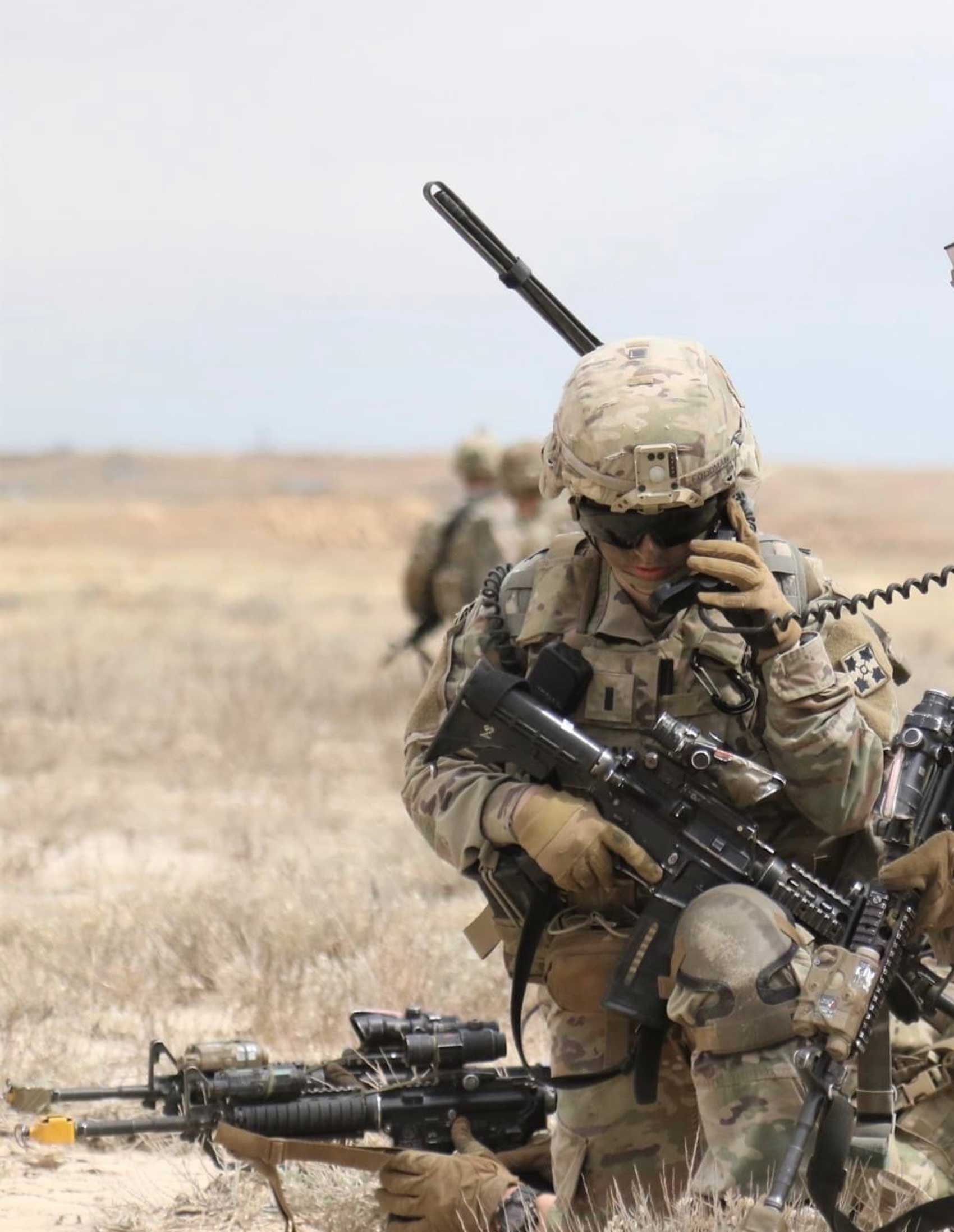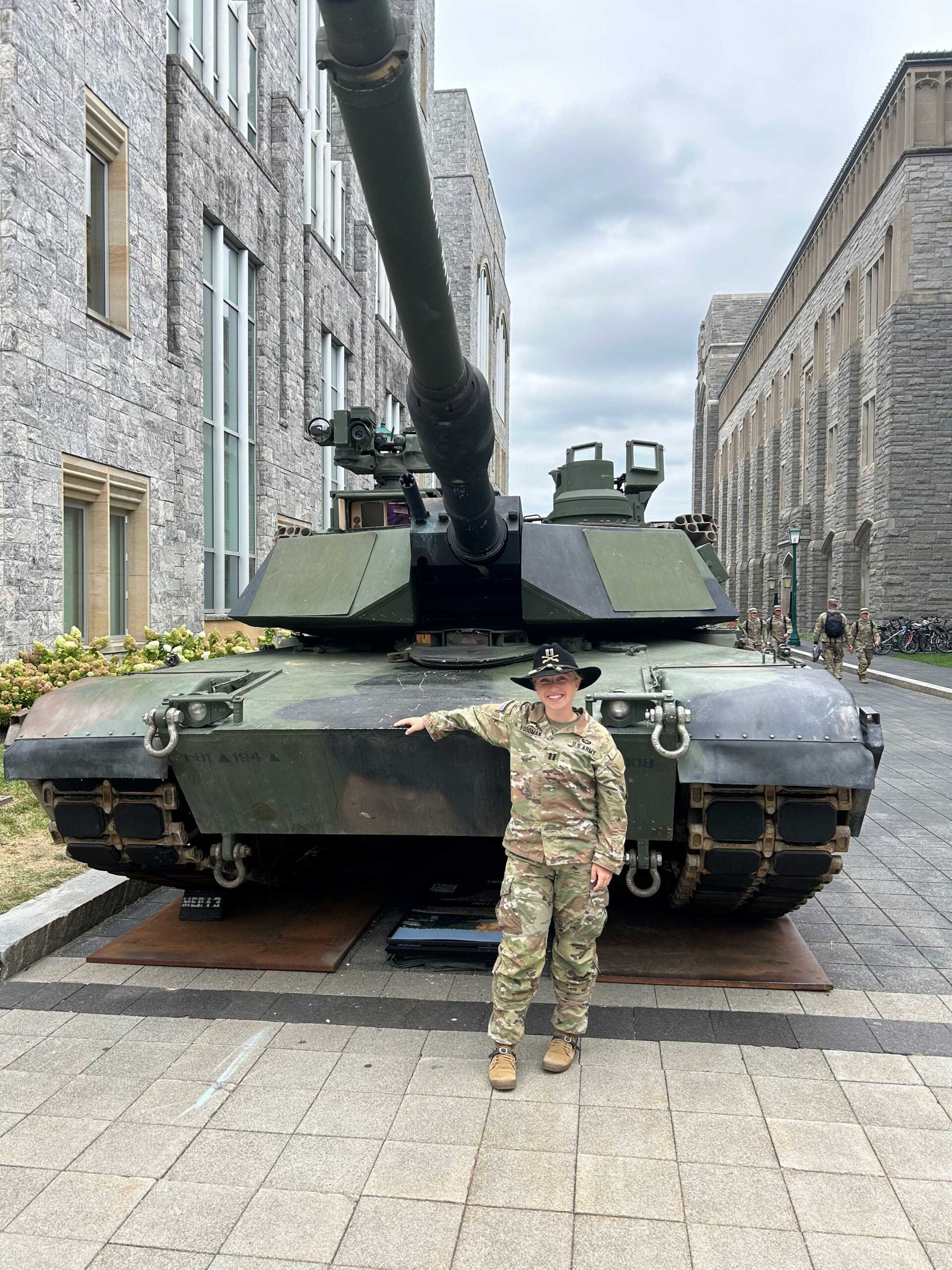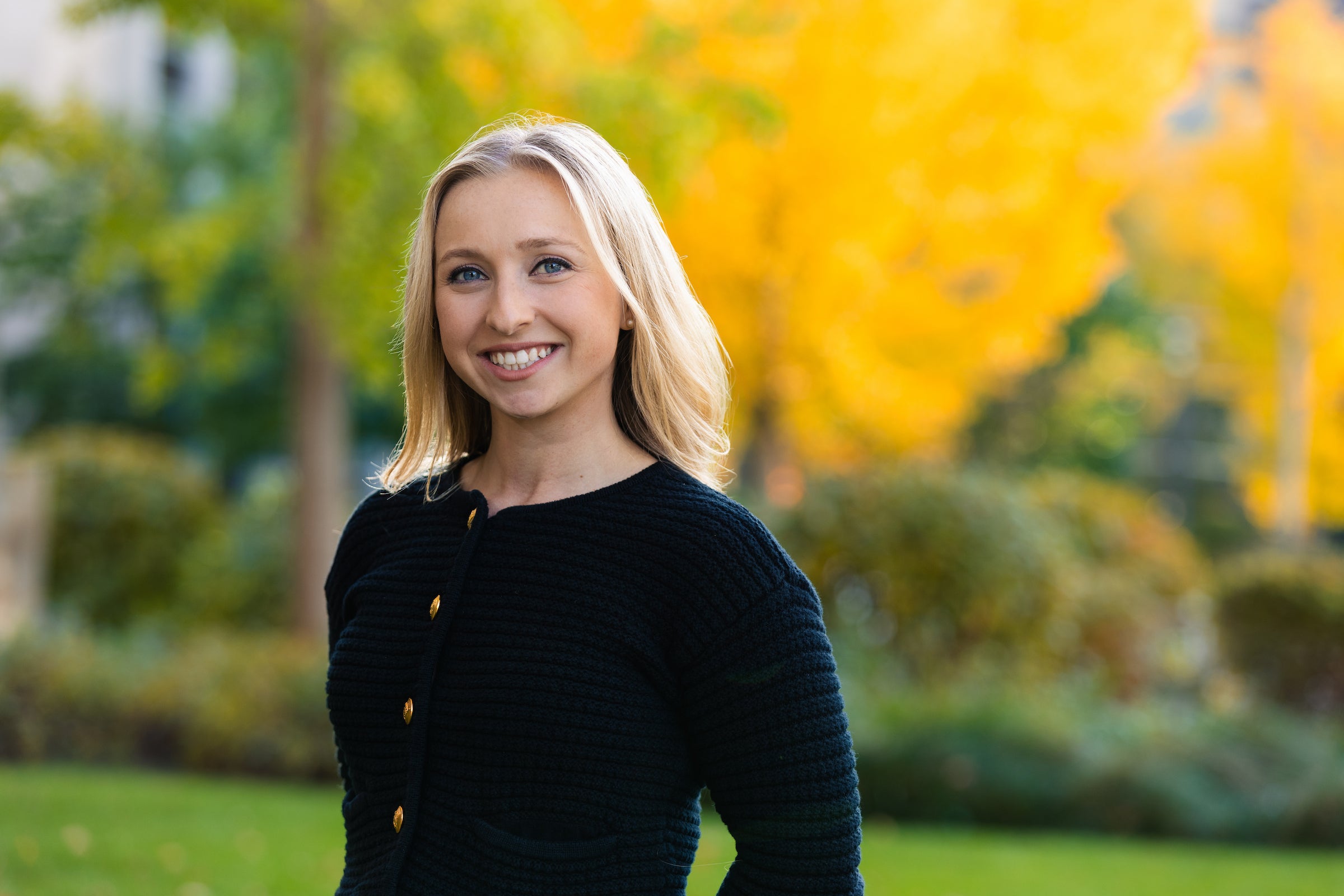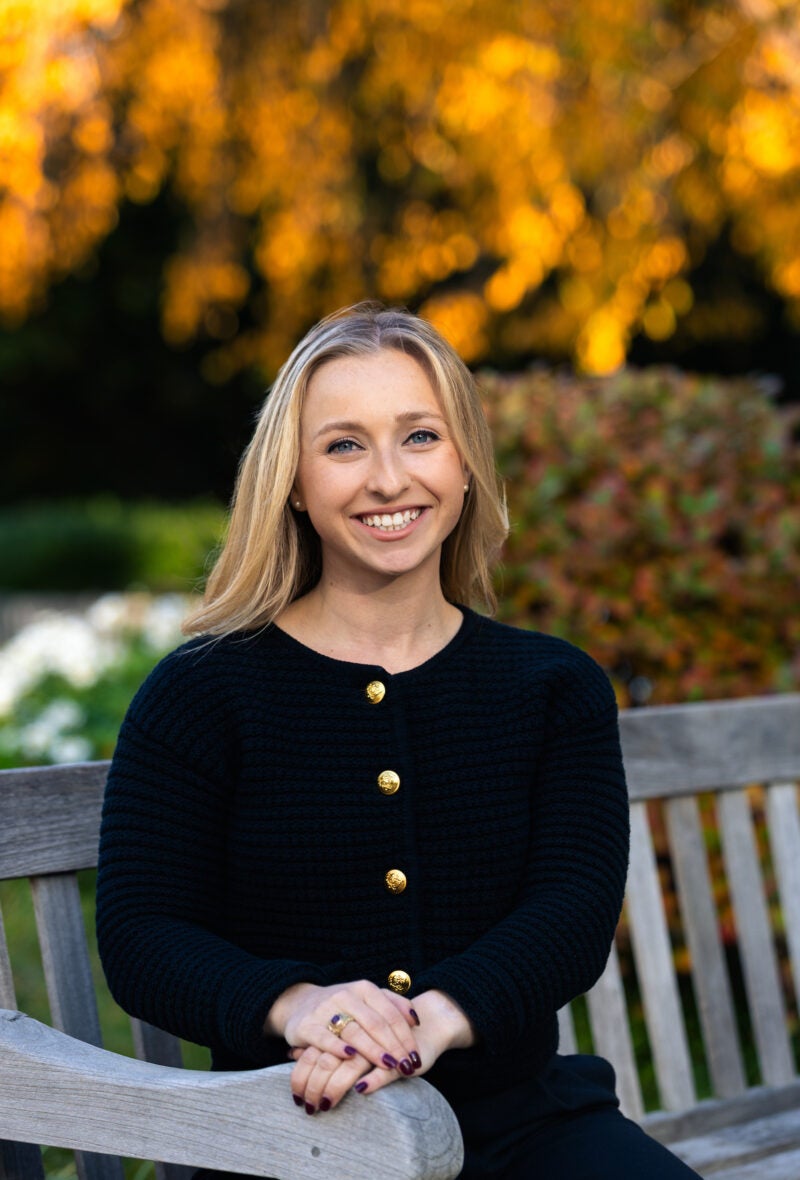Leah Foodman, who grew up in Redding, Connecticut, thrives on setting significant challenges and surmounting them, from riding on ambulance calls as a certified EMT in high school to serving among the first women in ground combat roles to leaving the military life she loved to study at Harvard Law School.
Foodman knew nothing about the military until she visited the U.S. Military Academy at West Point as a high schooler. But thousands of volunteer hours as an EMT, starting at age 15, instilled the desire to serve. “I loved the people, the service aspect, the camaraderie, feeling like I was part of something, and being able to help in someone’s worst moment,” says Foodman, who still volunteers on ambulance calls during trips home.
She never expected that EMS would lead her to the military, but the second she stepped on the West Point post she felt the call. “I saw the discipline and felt the common sense of service and sacrifice, and I had this feeling that ‘If I can do this, I will be able to tackle anything life throws at me,’” she says. “I wanted to take on that challenge, I wanted to be part of something bigger than myself, and above all, I wanted to serve my country.”
It was “definitely hard,” she says. “On top of academic classes, you have military duties and physical education classes like boxing and survival swimming. In boxing, I remember thinking, ‘I’ve never been punched in the face before.’ But that’s the point. They tell you that you’re there to learn more than how to box or swim. You’re there to learn how to take a punch or a wave to the face and keep moving forward. In retrospect, I really appreciate the lessons learned. When I feel like I’m being metaphorically punched in the face, I remind myself what a physical punch feels like.”
After her first year at West Point, she attended the U.S. Army Airborne School in Fort Benning, Georgia, where she jumped from a plane five times and earned her jump wings.
“At 18 years old, that was a big moment of overcoming fear,” says Foodman. “I feel like the moments that made me the person I am and that I’m most proud of were not necessarily classroom feats like taking a test or writing a paper, but moments where I proved to myself that I could do something I never thought I could.” Foodman adopted the personal mantra, “Feel the fear and do it anyway.”


At West Point, Foodman majored in American politics, which she credits as her inspiration to attend law school. In her final year as a cadet, she served as a regimental executive officer (second in command) for one of West Point’s four regiments, handling logistics and administrative issues for 1,200 cadets. She received the Association of the U.S. Army Award as the graduating cadet who best exemplified Army values and traditions, and the Superintendent’s Award for Achievement for graduating in the top 15 percent of the class based on academics, military leadership, and physical fitness.
As graduation approached, Foodman opted in for consideration as an Armor officer, one of two specialties that the Army had recently opened to women in 2016. As an Armor officer, she would manage tanks and cavalry operations, which includes reconnaissance and security missions.
Though she was admittedly nervous about volunteering to serve at the outset of gender integration in the Armor branch, she recalls thinking, “‘If I don’t do this, I will always wonder what it would have been like.’” She says, “I gathered as much information as I could about the job requirements, spoke with mentors, and engaged in a lot of self-reflection. Eventually, I decided that I was not going let intimidation cause me to miss out on an opportunity that inspired me.”
After graduating from West Point, she completed the Armor Basic Officer Leader Course and the Scout Leader Course for Army reconnaissance. She was then stationed at Fort Carson, Colorado as the very first female Armor officer and Scout Platoon Leader in 3-61 Cavalry Regiment, where she led 36 men to become combat ready.
“On one hand, I’m proud to have been the first female Armor officer in my unit, but I’m more proud that I was able to serve with and lead incredible people,” she says. “I think my soldiers just wanted a leader who they could trust and respect if we deployed … someone who could develop a tactical plan that would work.”
“I feel like the moments that made me the person I am and that I’m most proud of were the moments where I proved to myself that I could do something I never thought I could.”

Going in, she was “a little apprehensive,” she says. “I wanted to show that I could meet and exceed the same standards as the guys and that I was never going to quit.” Those qualities, as well as technical proficiency and “showing that you genuinely care” were the “keys to success.”
Foodman remains in contact with many of the soldiers she led. “I loved my soldiers,” she says. “I’m really honored that I had the opportunity to serve with the guys and be part of the unit.”
In a later assignment, she served as the Armor Branch Proponent officer, traveling to West Point and college ROTC programs across the country to identify and inspire potential Armor officers. To stay connected to her academic side, she published several papers, including one on Army recruiting selected for the Chief of Staff of the Army’s reading list.
After five years of active-duty service, she decided it was time to begin civilian life as a Harvard Law student. “Getting out of the Army was intimidating,” she says. “It’s all I’ve known since I was 17.” But, she adds, “I reminded myself of one of my favorite Army lessons … ‘Feel the fear and do it anyway.’ And now I’m here.”
She doesn’t yet know what kind of law she will practice, but inspired by her father and grandfather, both attorneys, she says it will include service to others. “I feel like I can bring what I loved about being an EMT and being an Army officer to being a lawyer. I want to be in a job where I have a direct impact on people and on my community every day.”
Want to stay up to date with Harvard Law Today? Sign up for our weekly newsletter.
